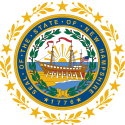Rule 1002. Requirement of the Original
An original writing, recording, or photograph is required in order to prove its content unless these rules or a statute provides otherwise.
2016 NHRE Update Committee Note
The amendments made by supreme court order dated April 20, 2017, effective July 1, 2017, made stylistic changes to the rule.



